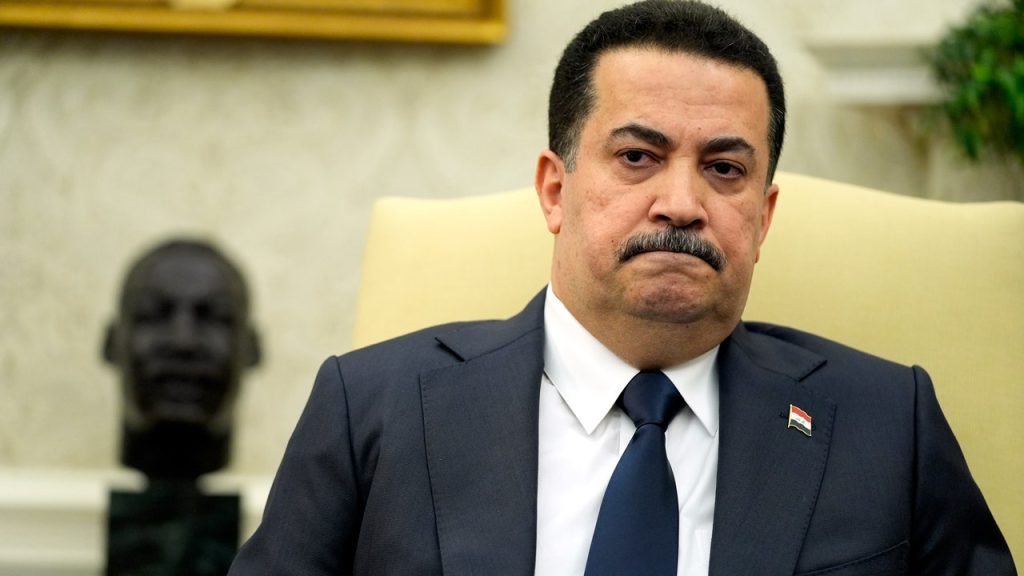The Iraqi government has requested that the United Nations end the United Nations Assistance Mission for Iraq (UNAMI) by the end of 2025. Prime Minister Mohammed Shia al-Sudani stated that Iraq has achieved important steps in areas falling under UNAMI’s mandate, making the mission redundant. The current term of the mission is set to expire at the end of the month, but Sudani’s letter did not oppose a one-year extension, emphasizing that the mission should focus on wrapping up its tasks to ensure a permanent closure by the end of 2025. Established in 2003 after the U.S. invasion that removed Saddam Hussein, UNAMI has been involved in facilitating dialogue, assisting with election logistics, monitoring human rights, and coordinating aid in conflict-affected areas.
The Iraqi government has been making efforts to wind down the presence of international bodies established in Iraq post-2003. Earlier this year, discussions were initiated to phase out the U.S.-led military coalition’s mission that was formed to combat the Islamic State group. Additionally, Iraq has decided not to renew the mandate for the U.N. Investigative Team to Promote Accountability for Crimes Committed by ISIS and has requested the team to exit by September 2024. These moves reflect the Iraqi government’s strategy to transition away from the presence of international bodies and assert more control over governance and human rights reforms in the country. Iraq’s request to end the UNAMI mission by 2025 is part of this broader effort to reduce reliance on external assistance and take responsibility for its own affairs.
The decision to request the end of the UNAMI mission comes as Iraq believes it has made significant progress in areas that were previously under the mission’s purview. While the mission has played a crucial role in fostering dialogue and supporting elections in the post-Saddam era, the current government believes that it is now capable of managing these tasks independently. By requesting the closure of UNAMI by the end of 2025, the Iraqi government is signaling its readiness to take full control of governance and human rights reforms within the country and reduce its dependence on external assistance.
The request to end the UNAMI mission is part of a larger trend of Iraq seeking to reduce the presence of international bodies in the country. By phasing out the U.S.-led military coalition and ending the mandate for the U.N. Investigative Team, Iraq is asserting its independence and sovereignty. These actions reflect a desire on the part of the Iraqi government to establish itself as a capable and self-sufficient governing body that is capable of managing its own affairs without external intervention. While international assistance has been crucial in the post-Saddam era, Iraq is now looking to take on a more independent role in governance and human rights reform efforts.
The decision to end the UNAMI mission by 2025 is a significant step in Iraq’s efforts to assert control over its own affairs and reduce reliance on external assistance. By determining that it has achieved important steps in areas previously overseen by the mission, the Iraqi government is demonstrating its ability to govern independently. The government’s request to ensure a permanent closure and transfer of responsibilities by the end of 2025 underscores its commitment to managing governance and human rights reforms on its own terms. It remains to be seen how the United Nations will respond to this request and what implications it may have for future international involvement in Iraq.
In conclusion, Iraq’s request to end the UNAMI mission by the end of 2025 marks a significant step in the country’s efforts to reduce reliance on external assistance and assert control over governance and human rights reforms. The decision to phase out international bodies like the U.S.-led military coalition and the U.N. Investigative Team reflects a broader trend of Iraq seeking to establish itself as a capable and independent governing body. By emphasizing its progress in areas previously overseen by UNAMI, the Iraqi government is highlighting its readiness to take on greater responsibility for managing its own affairs. It will be important to monitor how the United Nations responds to this request and what impact it may have on future international involvement in Iraq.













